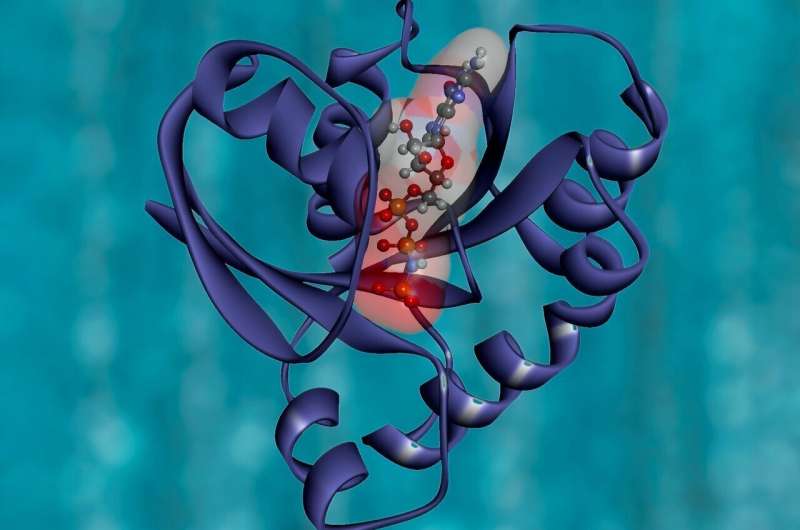
Certain anchor proteins inhibit a key metabolic driver that plays an important role in cancer and developmental brain disorders. Scientists from the German Cancer Research Center (DKFZ) and the University of Innsbruck, together with a Europe-wide research network, discovered this molecular mechanism, which could open up new opportunities for personalized therapies for cancer and neuronal diseases. They published their results in the journal Cell.
The signaling protein MTOR (Mechanistic Target of Rapamycin) is a sensor for nutrients such as amino acids and sugars. When sufficient nutrients are available, MTOR boosts metabolism and ensures that sufficient energy and cellular building blocks are available. Since MTOR is a central switch for metabolism, errors in its activation lead to serious diseases. Cancers and developmental disorders of the nervous system leading to behavioral disorders and epilepsy can be the result if MTOR is malfunctioning.
Therefore, the cell controls MTOR activity very precisely with the help of so-called suppressors. These are molecules that inhibit a protein and help to regulate its activity. The-TSC complex is such a suppressor for MTOR. It is named after the disease that causes its absence—tuberous sclerosis (TSC). The TSC complex is located together with MTOR at small structures in the cell, the so-called lysosomes, where it keeps MTOR in check. If the TSC complex—for example due to changes in one of its components—no longer remains at the lysosome, this can lead to excessive MTOR activity with severe health consequences.
Protein with an anchor function
The teams led by Christiane Opitz at DKFZ and Kathrin Thedieck at the University of Innsbruck therefore investigated how the TSC complex binds to lysosomes. They discovered that the G3BP proteins (Ras GTPase-activating protein-binding protein) are located together with the TSC complex on lysosomes. “There, the G3BP proteins form an anchor that ensures that the TSC complex can bind to the lysosomes,” explains Mirja Tamara Prentzell of DKFZ, first author of the publication. This anchor function plays a crucial role in breast cancer cells. If the amount of G3BP proteins is reduced in cell cultures, this not only leads to increased MTOR activity, but also increases cell migration.
Drugs that inhibit MTOR prevent this spread, the researchers were able to show in cell cultures. In breast cancer patients, low levels of G3BP correlate with a poorer prognosis. “Markers like the G3BP proteins could be helpful to personalize therapies based on inhibition of MTOR,” explains Kathrin Thedieck, professor of biochemistry at the University of Innsbruck. The good thing is that drugs that inhibit MTOR are already approved as cancer drugs and could be tested specifically in further studies.
Source: Read Full Article






